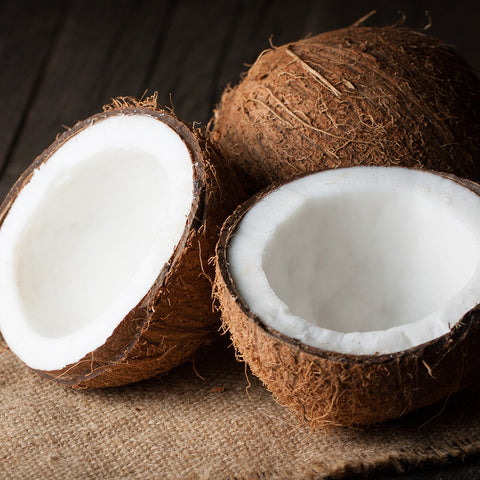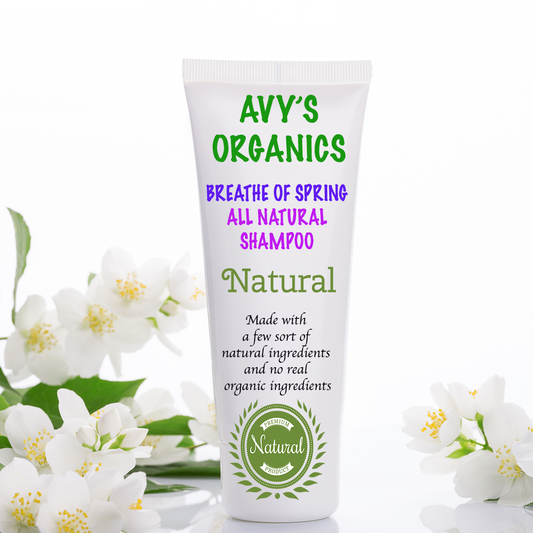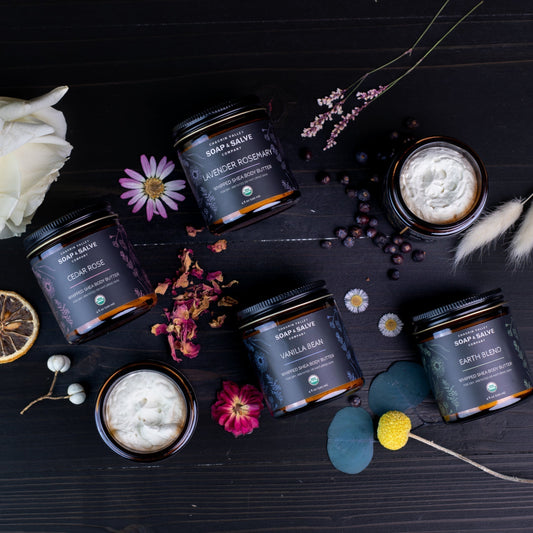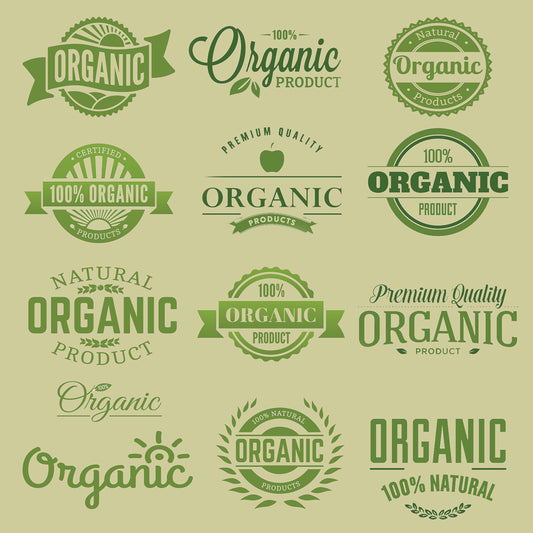Let's Do Away With The Word Natural!
As a natural skincare company, you might expect us to champion the word "natural." But here is the truth: it is one of the most meaningless words in today's skin care industry.
Walk down any skincare aisle, and you will see “natural” plastered on labels. But, what does it mean?
According to the U.S. Food and Drug Administration (FDA), the term "natural" remains unregulated. As a result, no government agency, certification group, or independent authority defines or verifies the accuracy of "natural" claims on packaging."
Over the years, various agencies have attempted to define the term “natural.” In the 1970s, the Federal Trade Commission (FTC) proposed defining “natural” foods as “those with no artificial ingredients and only minimal processing.” However, the FTC abandoned this definition in 1983.
The FDA also attempted to define "natural" in 1989 but formally gave up the effort.

In 1993, the FDA provided an informal and unbinding definition: natural means that nothing artificial or synthetic has been included in, or has been added to, a food that would not normally be expected to be in the food.
In other words, they focused more on what is not natural rather than what is.
Where do we draw the line? If an ingredient comes from nature but is chemically altered in a lab, is it still natural?
The Safe and Accurate Food Labeling Act was introduced in the U.S. House of Representatives in 2015 with the goal of requiring the FDA to define the term "natural" on food and beverage labels. This would have provided clearer guidance for both the industry and consumers. Unfortunately, the bill ultimately died in committee.
Unlike Certified Organic, which follows strict USDA standards, the word natural is up for interpretation—and skin care brands take full advantage of that loophole.
Defining The Word Natural
When I was a young girl, a powdered drink called "Tang" became popular in the 1960s and '70s as the go-to beverage for astronauts. This orange-flavored mix, high in vitamin C, was marketed as a convenient, shelf-stable alternative to fresh orange juice.
Today, most people would agree that the best, most natural source of orange flavor and vitamin C is a simple orange, straight from nature and unprocessed.
But if we all agree that an orange is natural and Tang is not, what about everything in between? Orange juice, orange marmalade, dried orange slices, or even essential oil extracted from orange peels—where do they fall on the spectrum of “natural”?
Humanity has been reshaping patterns in nature for many millennia. The sweet orange, as we know it, is not a naturally occurring species but rather a hybrid created through human intervention. So is it natural?
The challenge in defining “natural” is that there is no universally accepted boundary between what qualifies as natural and what doesn’t. The line is often blurry, shaped by perception, processing methods, and marketing claims.
So what does natural mean?
Well, that depends on who you ask.
Try this simple exercise. Ask friends and family to define what “natural” is and what it isn’t. You will get a range of responses, each with its own perspective. Someone will craft the perfect definition—until someone else says, “But what if…?”
The Murky Meaning of 'Natural': Where Do We Draw the Line?
When we think of natural skincare products, we often imagine ingredients plucked straight from nature. But, you can not plant a seed and grow a bar of soap or a jar of face cream—every ingredient requires some level of processing. Without a legal definition for “natural,” the term becomes subjective, shaped by a company’s philosophy, marketing strategy, and target audience.
 Merriam-Webster defines “natural” as “existing in nature and not made or caused by people.” Although this seems straightforward, what does “not made or caused by people” actually mean?
Merriam-Webster defines “natural” as “existing in nature and not made or caused by people.” Although this seems straightforward, what does “not made or caused by people” actually mean?
- Nearly everything we eat has been altered over generations through natural breeding techniques. I do not mean genetic modification, but it is human influence nonetheless.
- If I cook down tomatoes into a sauce, is it still natural?
- What if I mechanically crush olives to extract oil? Does the processing make it unnatural?
Human activities have significantly altered the natural world, making it difficult to find areas truly untouched by human influence.
Merriam-Webster also defines natural as “not having any extra substances or chemicals added.”
- But everything in nature is made of chemicals—so how do we interpret this?
- If I sprinkle extra salt into my tomato sauce, does it stop being natural?
- Jams and jellies have been made for centuries to preserve fruit. Is the result still natural if I cook organic blueberries with sugar, or does the added sugar disqualify it?
- If I harvest organic wheat, grind it into flour, mix it with ingredients like eggs, water, and baking soda, and bake it, the heat triggers chemical reactions that transform the dough into bread. Can we still call it 100% natural bread?
Naturally Confusing: The Fine Line Between Natural and Synthetic
Merriam-Webster continues to define natural as “not containing anything artificial. Seriously, now I am supposed to define what artificial means?
One of my favorite definitions of natural is: "Comes from nature . . . all ingredients used are from a natural source.”
At first glance, this sounds simple. But there is a significant difference between something that is naturally occurring and something that is derived from nature—or that simply originates from nature.
-
Naturally occurring ingredients exist in their natural state without undergoing synthetic processing. But that brings us right back to one of the questions we started with: what exactly defines a "natural state"?
- Derived from nature ingredients may start from a natural source but are chemically altered to create something new. The processing steps and alterations usually remain unknown.

For me, these definitions are still not clear. Here is the way I would differentiate the two.
Take coconut, for example:
- A whole coconut—whether sold fresh, shredded, or dried—is naturally occurring.
- Coconut oil, when mechanically pressed from the fruit, could also be considered naturally occurring.
- But what happens if that coconut oil is processed with sulfuric acid to form sulfate esters and then neutralized with sodium carbonate or sodium hydroxide? Now, we have Sodium Coco Sulfate (SCS) or Sodium Lauryl Sulfate (SLS)—common ingredients in shampoos, body washes, and toothpaste.
Although ingredients like SLS and SCS originate from coconuts, they undergo significant chemical transformations that turn them into something far removed from the original fruit.
Yet, many brands label their SLS or SCS as "coconut-derived" or "naturally derived" to make consumers feel better about using them. This clever wording is designed to mislead, because while the source may sound natural, the final ingredient is anything but.
What About "Natural" Carrier (or cooking) Oils?
Oils like olive or avocado can be naturally cold-pressed, made without heat or chemicals through a process that is solely mechanical. They can also be refined using chemical solvents (like hexane) to extract the oil from the source ingredient. This process may also include bleaching and deodorizing. Each of these oils began as a natural product. Is there a difference?
I think you get the point--"natural" is complicated!
It's What We Don't Know About Ingredients That Worries Me!
In June 2010, CNN aired “Toxic America,” a special investigative report detailing the pervasiveness of hazardous chemicals we are exposed to in our everyday lives.
Dr. Phil Landrigan, a pediatrician and director of the Children's Environmental Health Center at Mount Sinai School of Medicine, stated:
"For 80 percent of the common chemicals in everyday use in this country we know almost nothing about whether or not they can damage the brains of children, the immune system, the reproductive system, and the other developing organs. It's really a terrible mess we've gotten ourselves into."
Navigating skincare ingredients can be overwhelming. One website or study will claim an ingredient is completely safe, while another will warn against its dangers. So, who do you trust?
Many ingredients are considered safe in the small amounts used in skincare products. But that raises an important question: What happens when these small doses add up over a lifetime of daily use?
When I think of the various products I have used on my skin each and every day, I can’t help but wonder how much is "a safe small dose" after 62 years?
Some synthetic chemicals already have well-documented risks. But for countless other synthetic ingredients, the long-term effects remain largely unknown. That uncertainty is what concerns me the most.
You are probably saying to yourself . . . this is not news, so why is Ida so riled up?
The Illusion of "Natural"
Let me share a quick story.
Ben, our Chagrin Valley soapmaker (among many other things), was chatting with a fellow yoga classmate about our soaps when she proudly pulled out a bottle of her new "natural" liquid soap.
His instinct? Flip the bottle and read the ingredients—something our Chagrin family does without thinking.
 Here is what he found:
Here is what he found:
Ingredients: Water, Cocamidopropyl Betaine, PEG 80 Sorbitan Laurate, Sodium Trideceth Sulphate, Vegetable Glycerine, Aloe Barbadensis (Aloe Vera) Leaf Juice, Sodium Lauroamphoacetate, Ethylene Glycol Monostearate, PEG 150 Distearate,(and some lovely essential oils)
The next day, Ben came to work frustrated. "How can they call this 'natural' when it's full of synthetic foaming agents, emulsifiers, and surfactants?"
He dug deeper and found that PEG stands for polyethylene glycol, a petroleum-based compound made from ethylene glycol—the main ingredient in antifreeze.
Ironically, this product is not even legally soap, according to the FDA, it is a synthetic detergent. Source (But that’s a topic for another blog!)
Here’s the thing: Ben knows how much effort we put into sourcing the purest natural and organic ingredients from trusted vendors. At Chagrin Valley, "natural" actually means something. But out in the marketplace? Companies can slap that word on just about anything.
And guess what? It works.
The food and personal care industries want us to be confused.
They know a pretty label with flowers, and the word “natural” catches our attention.
One thing is perfectly clear—the word "natural" sells.
According to a survey done by 1000 people by Consumer Reports National Research Center in June 2014, "The claim 'natural,' which is stamped on countless food labels, is widely misunderstood by consumers."
"Nearly 60 percent of people look for the term when they shop for food, probably because they think the products labeled natural are better for them than products without that claim.” And I am sure this holds true for skincare products as well. Consumers read the word “natural” to mean "better" and "healthier."
I assured Ben that our customers are savvy (that’s why they are our customers). But what about everyone else?
If the word "natural" means everything and nothing at the same time, then why do we continue to use it, and why do we continue to place value on it?
The FDA has been under pressure to define "natural" for years. In 2014, Consumer Reports submitted a petition requesting the FDA to prohibit the use of the term "natural" on food labels. So far, the FDA has done neither. But I feel their pain.
Focus on Ingredients, Not Labels – It’s All About What’s Inside
 Whenever I see the word "natural" on a product, a red flag immediately goes up. My first instinct? Check the ingredients.
Whenever I see the word "natural" on a product, a red flag immediately goes up. My first instinct? Check the ingredients.
When I am especially concerned about ingredient processing, growing practices, or sourcing, I look for Certified USDA Organic products.
Now, let’s be honest—organic certification does not promise a more effective product. It does not guarantee that the product will erase wrinkles or perform miracles.
But what it does guarantee is this:
- The ingredients come from plants grown without pesticides, herbicides, synthetic fertilizers, sewer sludge, or GMOs.
- There are no synthetic fragrances, colors, or preservatives.
- The integrity of the ingredients is carefully monitored from sourcing to shelf.
Of course, organic certification is not perfect, but it holds the manufacturers who choose to be certified accountable, which is far more than we can say for the word "natural".
A Final Note: The Importance of USDA Certification in Organics
Sadly, the word "organic" has suffered a similar fate to "natural" in the cosmetic and personal care industry. Without USDA certification, the term "organic" is meaningless on personal care product labels.
The distinction is crucial; the word "organic" is not synonymous with USDA Certified Organic on skin care labels.

Here’s the problem:
- Unlike food labels, personal care products using the word "organic" are not held to the same strict organic standards.
- Some companies genuinely misunderstand labeling regulations, while others intentionally mislead consumers by slapping "organic" on their packaging, websites, and marketing materials without meeting any real standards.
- And since there is no “organic police” for skincare, these misleading claims usually go unchecked.
How do you know you are buying truly organic products?
Look for the USDA Organic seal and for the words "Certified Organic by..." followed by the name of a USDA-accredited certifying agent.
For example, our labels say "Certified Organic by OEFFA," which is our USDA-accredited certifying agent. That means our products meet the same rigorous organic standards as food.
It is the only guarantee that the word "organic" has meaning!

Why We Became a Certified Organic Company
Why We Believe In Natural, Organic Skin Care
What Do All of the Organic Labels Mean?
But . . . The Label Says "Natural" (Misleading Labels)


